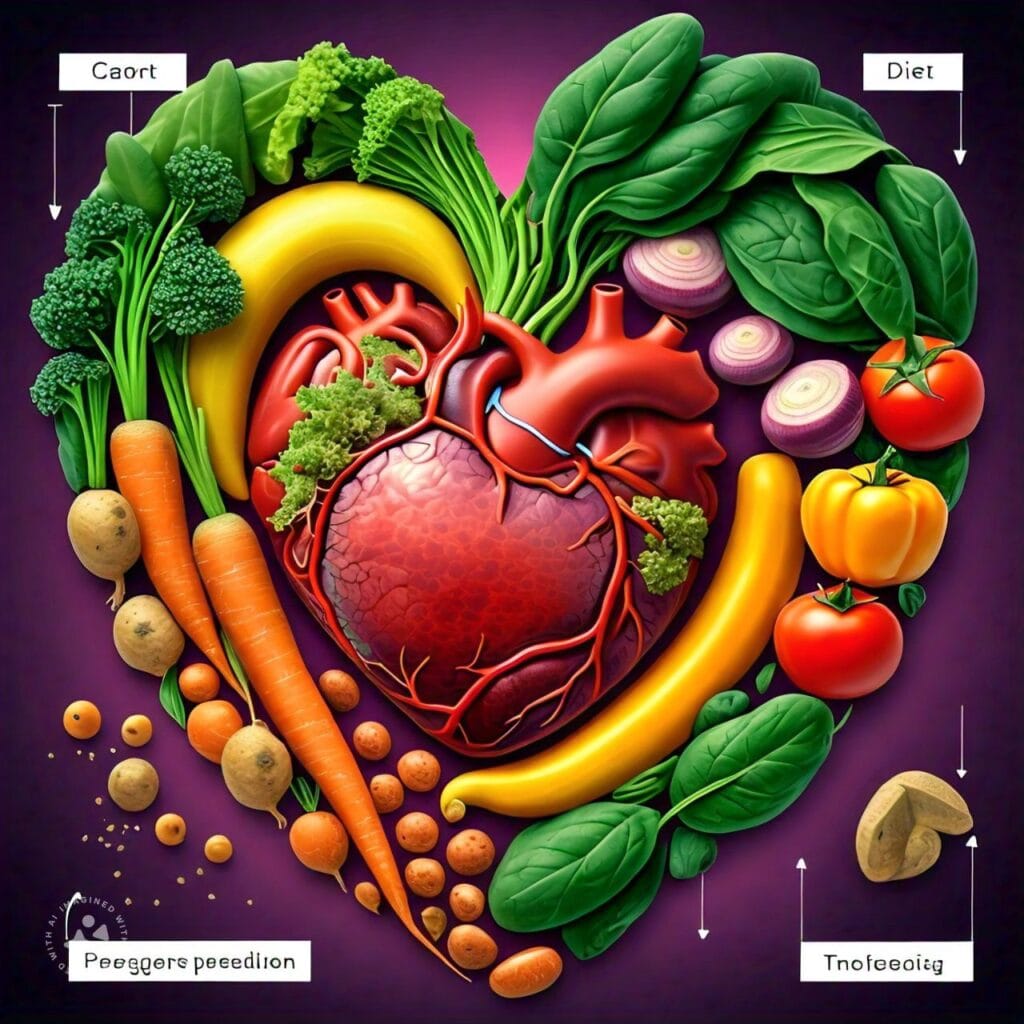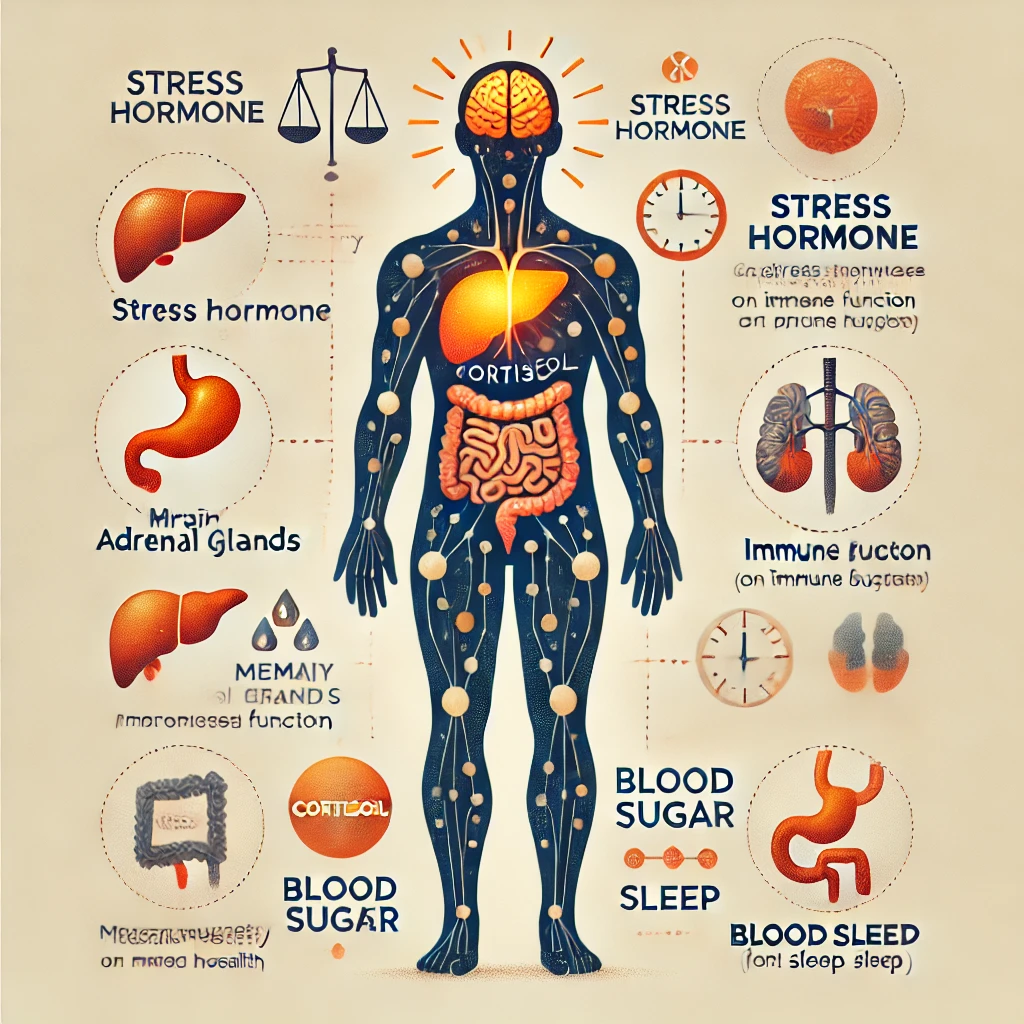“Diet For Energy Production In Heart Cells.” will helps us about Understanding Coronary Artery Disease
“Diet For Energy Production In Heart Cells.” This article saying that Before delving into non-medical treatments. it’s essential to understand what CAD entails, the condition arises when fatty deposits or plaques build up in the arterial walls and reducing blood flow to the heart. This can lead to chest pain (angina), heart attacks, and other serious complications.
The Importance of Lifestyle Modifications
Lifestyle modifications form the cornerstone of non-medical treatment approaches for CAD. These changes can reduce risk factors as well as helps to improve overall heart health, Here are some key areas to focus on that:
Dietary Changes The Physiological Effects of Dietary Changes on Coronary Artery Disease
“Diet for Energy Production in Heart Cells” states that coronary artery disease (CAD) is a leading cause of morbidity and mortality worldwide. While medical treatments play a crucial role in managing this condition, dietary changes have been shown to have profound physiological effects that can significantly improve outcomes for those affected. This blog, “Diet for Energy Production in Heart Cells,” will explore various dietary modifications that can help manage CAD, detailing their physiological impacts and supporting them with scientific research.
Table of Contents
- Understanding Coronary Artery Disease
- The Role of Diet in Heart Health
- Key Nutrients for Cardiovascular Health
- 3.1. Healthy Fats
- 3.2. Fiber
- 3.3. Antioxidants
- 3.4. Potassium and Magnesium
- Physiological Effects of Dietary Changes
- 4.1. Reduction of LDL Cholesterol Levels
- 4.2. Improvement of Endothelial Function
- 4.3. Lowering of Blood Pressure
- 4.4. Weight Management
- 4.5. Reduction of Inflammation
- Specific Dietary Patterns
- 5.1. Mediterranean Diet
- 5.2. DASH Diet
- 5.3. Plant-Based Diet
- Practical Dietary Changes for CAD Management
- Conclusion
- References
Understanding Coronary Artery Disease
Coronary artery disease (CAD) is a condition that affects millions of people worldwide, characterized by the narrowing or blockage of the coronary arteries, primarily due to atherosclerosis. While medical treatments including medications and surgical interventions play a vital role in managing CAD and non-medical treatment approaches can significantly enhance patient outcomes and improve quality of life. In this article, we will explore various non-medical strategies that can help manage CAD effectively.

The Role of Diet in Heart Health
Diet plays a pivotal role in heart health. An unhealthy diet can lead to obesity, high cholesterol, hypertension, and diabetes, all of which are risk factors for CAD. Conversely, a balanced, nutrient-rich diet can significantly reduce these risks and improve overall cardiovascular health.
Key Nutrients for Cardiovascular Health
1. Healthy Fats
- Omega-3 Fatty Acids: Found in fish, walnuts, and flax seeds, omega-3 fatty acids help reduce inflammation and lower triglyceride levels. Research shows that these fats can decrease the risk of arrhythmias and improve heart function.
2. Fiber
- Soluble and Insoluble Fiber: Both types of fiber contribute to heart health. Soluble fiber, found in oats, beans, and fruits, can lower LDL cholesterol. Insoluble fiber, found in whole grains and vegetables, aids in digestion and helps maintain a healthy weight.
3. Antioxidants
- Vitamins C and E, and Polyphenols: These antioxidants help reduce oxidative stress and inflammation, contributing to improved cardiovascular health. Foods high in antioxidants include berries, dark chocolate, and green tea.
4. Potassium and Magnesium
- Electrolyte Balance: Both potassium and magnesium play a vital role in regulating blood pressure. Increasing intake through fruits, vegetables, and nuts can help mitigate hypertension.
Physiological Effects of Dietary Changes
1. Reduction of LDL Cholesterol Levels
One of the most significant benefits of dietary changes is the reduction of LDL cholesterol levels.
- Mechanism: Reducing saturated fat and trans fats while increasing fiber intake helps in the lower LDL cholesterollevel and decreasing the risk of plaque buildup in the arteries.
2. Improvement of Endothelial Function
A diet rich in fruits, vegetables, and healthy fats enhances endothelial function.
- Mechanism: Improved endothelial function results from increased nitric oxide production, leading to better vasodilation and blood flow.
3. Lowering of Blood Pressure
Dietary modifications can lead to significant reductions in blood pressure.
- Mechanism: A diet low in sodium and rich in potassium can help relax blood vessels, thereby reducing blood pressure.
4. Weight Management
Maintaining a healthy weight is crucial in managing CAD.
- Mechanism: A diet rich in whole foods supports the weight loss and helps reduce the overall risk factors associated with CAD.
5. Reduction of Inflammation
Dietary changes can significantly reduces the systemic inflammation.
- Mechanism: A diet high in antioxidants and omega-3 fatty acids can help lower inflammatory markers in the body.

Specific Dietary Patterns
1. Mediterranean Diet
The Mediterranean diet emphasizes whole grains, fruits, vegetables, legumes, nuts, and healthy fats.
- Benefits: Numerous studies have shown that this diet is associated with lower rates of CAD and improved cardiovascular health.
2. DASH Diet
The Dietary Approaches to Stop Hypertension (DASH) diet focuses on reducing sodium and increasing nutrient-rich foods.
- Benefits: This diet has been proven to lower blood pressure and improve heart health.
3. Plant-Based Diet
A plant-based diet emphasizes fruits, vegetables, legumes, and whole grains and try to minimizing the animal products.
- Benefits: Research suggests that the plant-based diets can reduce the risk of CAD significantly.
Practical Dietary Changes for CAD Management
Actionable Tips:
- Increase intake of fruits and vegetables at least five servings per day.
- Choose whole grains over refined grains.
- Limit saturated fats and trans fats while incorporating the healthy fats.
- Reduce sodium intake and increase potassium-rich foods.
- Stay hydrated and limit sugary beverages.
Regular Physical Activity
Engaging in regular physical activity is crucial for heart health. Here are some recommendations:
- Aerobic Exercise: Activities like walking, swimming, and cycling can improve cardiovascular fitness.
- Strength Training: Incorporating strength training exercises at least twice a week can help in maintain muscle mass and metabolism.
- Flexibility and Balance Exercises: Yoga and stretching can improve the overall physical function and well-being.
Weight Management
Maintaining a healthy weight is essential for those with CAD. Excess weight can strain the heart and worsen existing conditions. Strategies include:
- Setting Realistic Goals: Aim for gradual weight loss (1-2 pounds per week).
- Tracking Food Intake: Keeping a food diary can help identify eating patterns and areas for improvement.
- Portion Control: Be mindful of portion sizes to avoid overeating.
Smoking Cessation
Smoking is one of the most significant risk factors for CAD. Quitting can lead to substantial improvements in heart health. Consider the following methods:
- Behavioral Therapy: Support groups and counseling can help individuals quit smoking.
- Nicotine Replacement Therapy: Products like patches, gums, and lozenges can ease withdrawal symptoms.
- Medications: Consult with a healthcare provider about prescription options to aid in smoking cessation.
Stress Management
Chronic stress can negatively impact heart health. Effective stress management techniques include:
- Mindfulness and Meditation: Practices that promote relaxation can lower blood pressure and improve the overall well-being.
- Deep Breathing Exercises: These can help reduce stress levels and enhance focus.
- Hobbies and Leisure Activities: Engaging in enjoyable activities can be a great way to relieve stress.
Complementary Therapies
In addition to lifestyle modifications several complementary therapies can support the heart health. These approaches can enhance well-being and may aid in managing CAD.
Acupuncture
Acupuncture may help relieve stress and improve circulation. Some studies suggest that, it can positively influence the heart health though further research is needed.
Massage Therapy
Regular massage can reduce stress and promote relaxation, potentially benefiting heart health. It may also help alleviate muscle tension caused by stress.
Nutritional Supplements
Certain supplements may support heart health. However, it’s essential to consult a healthcare provider before starting any new supplement regimen. Some beneficial supplements include:
- Omega-3 Fatty Acids: Found in fish oil, they can help lower triglycerides.
- Coenzyme Q10: May support energy production in heart cells.
- Plant Sterols: Can help lower cholesterol levels.
Education and Self-Management
Patient education is crucial in managing CAD. Understanding the condition and its risk factors empowers individuals to take charge of their health. Consider the following approaches:
Cardiac Rehabilitation Programs
These programs provide education on heart-healthy living, including diet, exercise, and stress management. They also offer supervised exercise programs tailored to individual needs.
Support Groups
Joining a support group can provide emotional support and practical advice from others facing similar challenges. Sharing experiences can foster a sense of community and motivation.
Conclusion
Managing Coronary Artery Disease extends beyond medications and surgical interventions. By adopting a comprehensive approach that includes lifestyle modifications, complementary therapies, and education, individuals can significantly improve their heart health and overall well-being. It’s essential to consult with healthcare professionals before making any major lifestyle changes to ensure they align with individual health needs. Taking charge of one’s health through these non-medical treatment approaches can lead to a longer, healthier life, free from the debilitating effects of CAD
References
“Diet For Energy Production In Heart Cells.”
- Astrup, A., et al. (2011). The role of dietary fat in the prevention of coronary heart disease.
- Schächinger, V., et al. (2000). Prognostic impact of endothelial dysfunction in patients with coronary artery disease.
- He, F. J., & MacGregor, G. A. (2009). Reducing salt intake to prevent high blood pressure and cardiovascular disease.
- Schwingshackl, L., & Hoffmann, G. (2014). Dietary intervention to reduce weight in adults with obesity: a systematic review and network meta-analysis.
- Calder, P. C. (2012). Omega-3 fatty acids and inflammatory processes: from molecules to man.
FAQ
Answer: Coronary artery disease (CAD) occurs when the coronary arteries narrow or become blocked due to plaque buildup, primarily composed of cholesterol. Diet plays a crucial role in managing CAD by influencing risk factors such as cholesterol levels, blood pressure, and inflammation. A heart-healthy diet can help lower LDL cholesterol, improve endothelial function, and reduce blood pressure, thereby decreasing the risk of CAD-related complications.
1: What is coronary artery disease (CAD), and how is it affected by diet?
FAQ 2: Which dietary changes can effectively lower LDL cholesterol levels?
Answer: To effectively lower LDL cholesterol, consider these dietary changes:
- Reduce saturated fats found in red meat and full-fat dairy products.
- Avoid trans fats found in many processed foods.
- Increase soluble fiber intake through foods like oats, beans, and fruits.
- Incorporate healthy fats, such as those from olive oil and fatty fish, which contain omega-3 fatty acids.
FAQ 3: How does the Mediterranean diet benefit heart health?
Answer: The Mediterranean diet emphasizes whole grains, fruits, vegetables, legumes, nuts, and healthy fats like olive oil while limiting processed foods and red meat. Research shows that this dietary pattern is associated with lower rates of heart disease, improved cholesterol levels, and better overall cardiovascular health, largely due to its anti-inflammatory properties and nutrient density.
FAQ 4: What role do antioxidants play in managing coronary artery disease?
Answer: Antioxidants, such as vitamins C and E, and polyphenols, help combat oxidative stress and inflammation in the body. These compounds are found in high amounts in fruits, vegetables, nuts, and whole grains. By reducing oxidative damage to blood vessels and lowering inflammation, antioxidants can contribute to improved heart health and reduced risk of CAD progression.
FAQ 5: How can someone start making dietary changes to manage CAD?
Answer: To begin making dietary changes for CAD management:
- Increase the intake of fruits and vegetables to at least five servings daily.
- Choose whole grains over refined grains.
- Limit sodium and incorporate more potassium-rich foods like bananas and leafy greens.
- Focus on lean proteins and healthy fats while minimizing saturated and trans fats.
- Consider consulting with a healthcare professional or dietitian for personalized advice.

